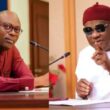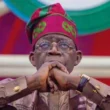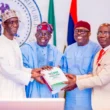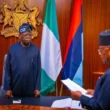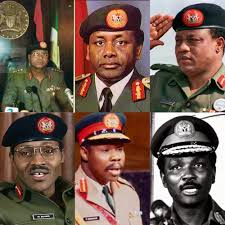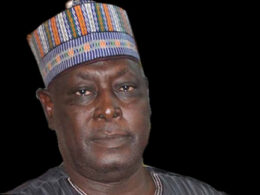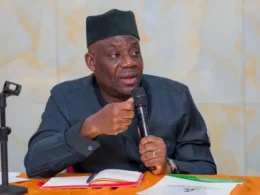By Onyeche Igwe
The Nigerian Civil War (6th July 1967 – 15th January 1970) was a civil war fought between the government of Nigeria and the Republic of Biafra, a secessionist state which had declared its independence from Nigeria in 1967. Nigeria was led by General Yakubu Gowon, while Biafra was led by Lt. Colonel Odumegwu Ojukwu. Biafra represented the nationalist aspirations of the Igbo ethnic group, whose leadership felt they could no longer coexist with the federal government dominated by the interests of the Muslim Hausa-Fulanis of northern Nigeria.The conflict resulted from political, economic, ethnic, cultural and religious tensions which preceded Britain’s formal decolonization of Nigeria from 1960 to 1963. Immediate causes of the war in 1966 included ethno-religious violence and anti-Igbo pogroms in Northern Nigeria, a military coup, a counter-coup and persecution of Igbo living in Northern Nigeria. Control over the lucrative oil production in the Niger Delta also played a vital strategic role.
COMMANDERS AND LEADERS:
Nigeria Hassan Katsina
Nigeria Mohammed Shuwa
Nigeria Benjamin Adekunle
Nigeria Theophilus Danjuma
Nigeria Shehu Musa Yar’Adua
Nigeria Yakubu Gowon
Nigeria Murtala Mohammed
Nigeria Olusegun Obasanjo
Nigeria Muhammadu Buhari
Nigeria Ibrahim Babangida
Nigeria Sani Abacha
Biafra Odumegwu Ojukwu
Biafra Philip Effiong
Biafra Albert Okonkwo
Biafra Victor Banjo
Biafra Ogbugo Kalu
Biafra Joseph Achuzie
Biafra Timothy Onwuatuegwu
Biafra Humphrey Chukwuka
Within a year, the Federal Government troops surrounded Biafra, capturing coastal oil facilities and the city of Port Harcourt. The blockade imposed as a deliberate policy during the ensuing stalemate led to mass starvation. During the two and half years of the war, there were about 100,000 overall military casualties, while between 500,000 and 2 million Biafran civilians died of starvation.
In mid-1968, images of malnourished and starving Biafran children saturated the mass media of Western countries. The plight of the starving Biafrans became a cause célèbre in foreign countries, enabling a significant rise in the funding and prominence of international non-governmental organisations (NGOs). The United Kingdom and the Soviet Union were the main supporters of the Nigerian government, while France, Israel and some other countries supported Biafra
The civil war can be connected to the colonial amalgamation in 1914 of Northern protectorate, Lagos Colony and Southern Nigeria protectorate (later renamed Eastern Nigeria), intended for better administration due to the close proximity of these protectorates. However, the change did not take into consideration the differences in the culture and religions of the peoples in each area. Competition for political and economic power exacerbated tensions.
Nigeria gained independence from the United Kingdom in 1960, with a population of 60 million, made up of more than 300 differing ethnic and cultural groups. When the colony of Nigeria had been created, its three largest ethnic groups were the Igbo, who formed about 60–70% of the population in the southeast; the Hausa-Fulani of the Sokoto Caliphate, who formed about 67% of the population in the northern part of the territory; and the Yoruba, who formed about 75% of the population in the southwestern part. Although these groups have their own homelands, by the 1960s, the people were dispersed across Nigeria, with all three ethnic groups represented substantially in major cities. When the war broke out in 1967, there were still 5,000 Igbos in Lagos.
The semi-feudal and Muslim Hausa-Fulani in the North were traditionally ruled by a conservative Islamic hierarchy consisting of emirs who in turn owed their allegiance to a supreme Sultan. This Sultan was regarded as the source of all political power and religious authority.
The Yoruba political system in the southwest, like that of the Hausa-Fulani, also consisted of a series of monarchs, the Oba, The Yoruba monarchs, however, were less autocratic than those in the North. The political and social system of the Yoruba accordingly allowed for greater upward mobility, based on acquired rather than inherited wealth and title.
In contrast to the two other groups, Igbos and the ethnic groups of the Niger Delta in the southeast lived mostly in autonomous, democratically organised communities, although there were eze or monarchs in many of the ancient cities, such as the Kingdom of Nri. In its zenith the Kingdom controlled most of Igbo land, including influence on the Anioma people, Arochukwu (which controlled slavery in Igbo), and Onitsha land. Unlike the other two regions, decisions within the Igbo communities were made by a general assembly in which men and women participated.
The differing political systems among these three peoples reflected and produced divergent customs and values. The Hausa-Fulani commoners, having contact with the political system only through a village head designated by the Emir or one of his subordinates, did not view political leaders as amenable to influence. Political decisions were to be submitted to. As with many other authoritarian religious and political systems, leadership positions were given to persons willing to be subservient and loyal to superiors. A chief function of this political system in this context was to maintain conservative values, which caused many Hausa-Fulani to view economic and social innovation as subversive or sacrilegious.
In contrast to the Hausa-Fulani, the Igbos and other Biafrans often participated directly in the decisions which affected their lives. They had a lively awareness of the political system and regarded it as an instrument for achieving their personal goals. Status was acquired through the ability to arbitrate disputes that might arise in the village, and through acquiring rather than inheriting wealth. The Igbo had been substantially victimized in the Atlantic slave trade; in the year 1790 it was reported that of 20,000 people sold each year from Bonny, 16,000 were Igbo. With their emphasis upon social achievement and political participation, the Igbo adapted to and challenged colonial rule in innovative ways.
These tradition-derived differences were perpetuated and perhaps enhanced by the colonial government in Nigeria. In the North, the colonial government found it convenient to rule indirectly through the Emirs, thus perpetuating rather than changing the indigenous authoritarian political system. Christian missionaries were excluded from the North, and the area thus remained virtually closed to European cultural influence. By contrast the richest of the Igbo often sent their sons to British universities, thinking to prepare them to work with the British. During the ensuing years, the Northern Emirs maintained their traditional political and religious institutions, while reinforcing their social structure. At the time of independence in 1960, the North was by far the most underdeveloped area in Nigeria. It had an English literacy rate of 2%, as compared to 19.2% in the East (literacy in Ajami (local languages in Arabic script), learned in connection with religious education, was much higher). The West also enjoyed a much higher literacy level, as it was the first part of the country to have contact with western education, and established a free primary education program under the pre-independence Western Regional Government.
In the West, the missionaries rapidly introduced Western forms of education. Consequently, the Yoruba were the first group in Nigeria to adopt Western bureaucratic social norms. They made up the first classes of African civil servants, doctors, lawyers, and other technicians and professionals.
Missionaries were introduced at a later date in Eastern areas because the British experienced difficulty establishing firm control over the highly autonomous communities. However, the Igbo and other Biafran people actively took to Western education, and they overwhelmingly came to adopt Christianity. Population pressure in the Igbo homeland, combined with aspirations for monetary wages, drove thousands of Igbos to other parts of Nigeria in search of work. By the 1960s, Igbo political culture was more unified and the region relatively prosperous, with tradesmen and literate elites active not just in the traditionally Igbo East, but throughout Nigeria. By 1966, the ethnic and religious differences between Northerners and the Igbo had combined with additional stratification by virtue of education and economic class.
The war cost the Igbos a great deal in terms of lives, money and infrastructure. It has been estimated that up to one million people may have died due to the conflict, most from hunger and disease caused by Nigerian forces. More than half a million people died from the famine imposed deliberately through blockade throughout the war. Lack of medicine also contributed. Thousands of people starved to death every day as the war progressed. (The International Committee of the Red Cross in September 1968 estimated 8,000–10,000 deaths from starvation each day) The leader of a Nigerian peace conference delegation said in 1968 that “starvation is a legitimate weapon of war and we have every intention of using it against the rebels”. This stance is generally considered to reflect the policy of the Nigerian government. The federal Nigerian army is accused of further atrocities including deliberate bombing of civilians, mass slaughter with machine guns, and rape. The war ended in January, 1970.

